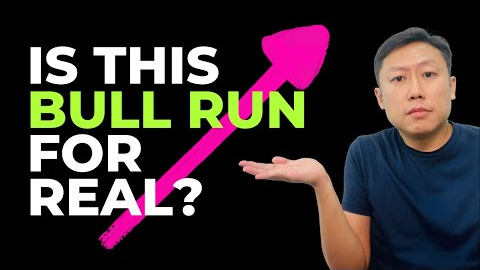Is this Bull Run for REAL?
5,382 View
Share this Video
- Publish Date:
- February 6, 2023
- Category:
- What Are Reits
- Video License
- Standard License
- Imported From:
- Youtube
Tags

Yesterday the Fed slowed down the rate hikes to the expected 0.25%. S&P 500 and Nasdaq Composite closed 1.1% and 2% higher respectively.
In fact, the S&P 500 rallied 17% since October 2022, or 8% since the start of the year.
Markets have been anticipating what the Fed is going to do and clues of a hike slowdown have been sprinkled in media reports prior to the last FOMC meeting. There were no surprises.
The only surprise was the strong run in the stock markets. Most investors were apprehensive of this run and even at this point, some think that the worst isn't over yet.
Michael Burry, the hedge fund manager who turned famous after his story appeared in the movie The Big Short, said that inflation has peaked but a second round of inflation spike will occur when the Fed cut interest rate once more.
He walked the talk and sold most of his stocks by 2Q 2022.
Another influential figure is Nassim Taleb, the famous author of The Black Swan, said that the 'Disneyland' days are over for investors - saying that the next 15 years are going to be harder than the previous 15 because higher interest rates are the new normal.
Mark Spitznagel, the fund manager of Universa whom Taleb advises, believes that a major market crash as bad as the Great Depression in the 1920s is looming.
It is hard to go against the experts and they do set the tone for the general market sentiment.
I have been looking at some statistics and I was more bullish than most.
Previously I shared about the US midterms and stock market performances.
S&P 500 tends to make good gains following a midterm election.
3 months after the midterms: +7.3%
6 months after: +15.1%
12 months after: +16.3%
The second stat was with regard to recession. Most would think it is bad for the markets but a recession has no correlation with S&P 500 performances.
However, stock market performances after a recession are usually very bullish. So a recession is a bottom indicator.
We don't have a recession yet but most believe it will happen this year, and that means this is a good year to buy stocks.
I do think a deeper crash is possible though not visible to me at this point in time. I tend to be more reactive than predictive as an investor.
Lastly, most years are bullish - 83% of the time you will see S&P 500 make a positive gain for the year.
Hence for most investors it makes sense to be invested more often than not. Moving in and out without a workable strategy is just guesswork and very likely to miss out gains.
So while the experts can give all sorts of views, it is your money at the end of the day and you have to decide what is best for your situation. Don't blindly take any narrative without thinking for yourself.















